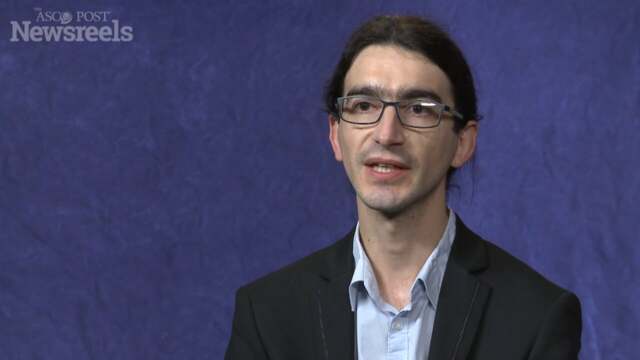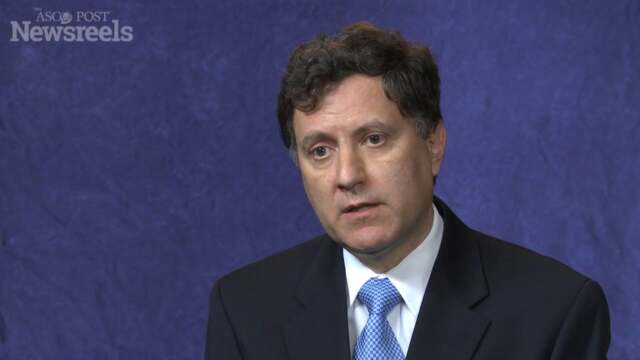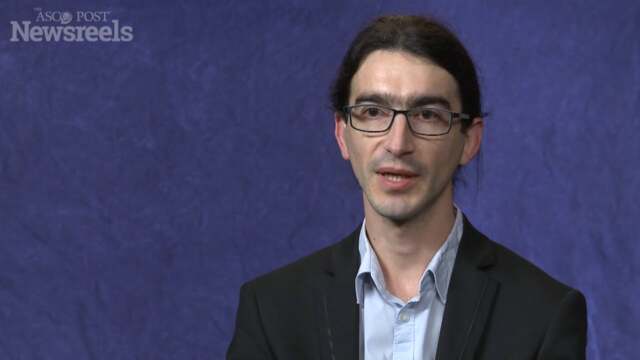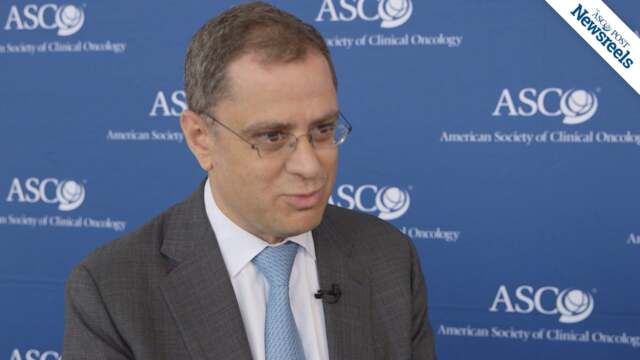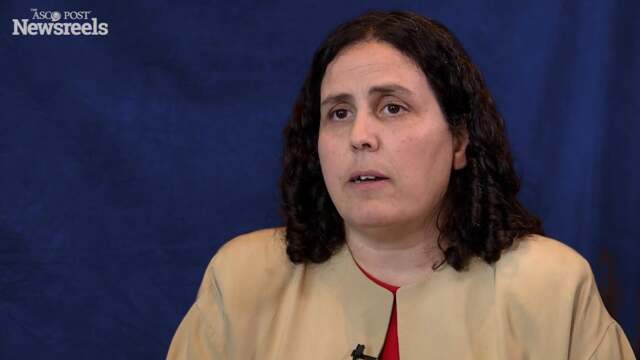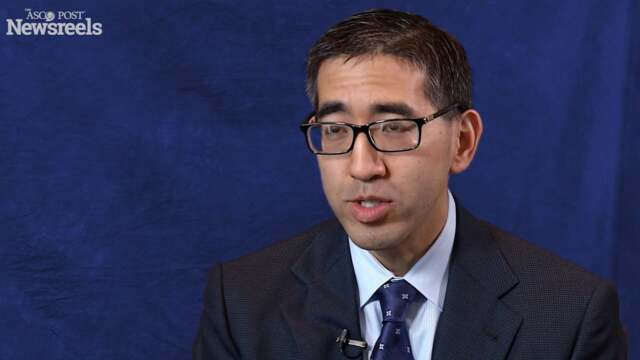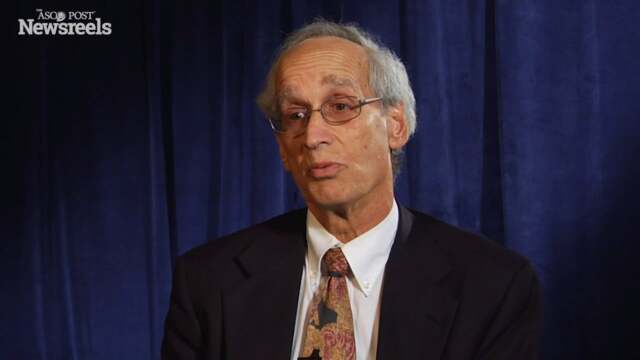Nivolumab in Advanced Hepatocellular Carcinoma
Nivolumab (Opdivo) has been found to produce durable responses in patients with advanced hepatocellular carcinoma, in the phase I/II CheckMate 040 trial. These findings were reported in The Lancet by El-Khoueiry et al. Study Details The phase I/II dose-escalation and dose-expansion trial was...
FDA Expands Approved Use of Regorafenib for Hepatocellular Carcinoma
The U.S. Food and Drug Administration (FDA) has expanded the approved use of regorafinib (Stivarga) to include treatment of patients with hepatocellular carcinoma who have been previously treated with the drug sorafenib (Nexavar). This is the first new FDA-approved treatment for liver cancer in...
ILC 2017: Selective Internal Radiation Therapy vs Sorafenib in Hepatocellular Carcinoma
Results of the SARAH trial presented at the 2017 International Liver Congress (ILC) demonstrated that selective internal radiation therapy (SIRT) resulted in a median overall survival of 8.0 months compared to 9.9 months with sorafenib (Nexavar; P = .179) in patients with locally advanced ...
Expert Point of View: Milind Javle, MD
Milind Javle, MD, Professor of Gastrointestinal Oncology at The University of Texas MD Anderson Cancer Center, Houston, discussed the findings from the CheckMate 040 trial presented at the 2017 Gastrointestinal Cancers Symposium. There is a strong rationale for investigating immunotherapy in liver ...
Nivolumab Shows Benefit in Advanced Hepatocellular Carcinoma
In patients with advanced hepatocellular carcinoma, treatment with nivolumab (Opdivo) resulted in responses and long-term survival in patients who were either previously treated or naive to sorafenib (Nexavar), CheckMate 040 has shown.1 Altogether 19% of patients responded to the antibody...
Common Genetic Variation and Risk of Gallbladder Cancer in India
Several single-nucleotide polymorphisms in the chromosomal region containing both ABCB1 and ABCB4 genes were associated with an increased risk of gallbladder cancer, in an Indian case-control genome-wide association study reported in The Lancet Oncology by Mhatre et al. Study Details The study...
Can Antiviral Therapy Prevent Liver Cancer in Patients With Chronic Hepatitis?
Chronic viral hepatitis is a major causative factor for hepatocellular carcinoma, but antiviral therapy might reduce the incidence of hepatocellular carcinoma by preventing or eliminating chronic hepatitis infections, according to Adrian M. Di Bisceglie, MD, Professor of Internal Medicine at Saint ...
Effect of Sorafenib and Hepatitis Status in Advanced Hepatocellular Carcinoma
In a meta-analysis reported in the Journal of Clinical Oncology, Jackson et al found that overall survival with sorafenib (Nexavar) in advanced hepatocellular carcinoma was significantly improved vs comparator treatments among patients who were both hepatitis B virus (HBV)-negative and hepatitis C...
Regorafenib in Second-Line Setting for Hepatocellular Carcinoma: Balancing Benefit With Toxicity
During the past 40 years, hundreds of randomized trials testing treatments for advanced hepatocellular carcinoma have been published.1 Conventional systemic chemotherapy and radiotherapy lack survival advantages for these patients.1,2 In 2007, a phase III trial demonstrated survival benefits for...
Regorafenib Improves Survival in Patients With Hepatocellular Carcinoma Progressing on Sorafenib
In the phase III RESORCE trial reported in The Lancet, Jordi Bruix, MD, Head of the Barcelona Clinic Liver Cancer Group, University of Barcelona, and colleagues found that regorafenib (Stivarga) improved overall survival vs placebo in patients with hepatocellular carcinoma who had progressed on...
Expert Point of View: Ghassan K. Abou-Alfa, MD
Ghassan K. Abou-Alfa, MD, a liver and biliary cancer specialist at Memorial Sloan Kettering Cancer Center, New York, commented on the study for The ASCO Post. While acknowledging that a single-institution study of 30 patients is naturally “limited in scope,” he said the outcome of the study of...
Novel Bridge to Liver Transplant May Improve Upon Standard of Care
For hepatocellular carcinoma patients awaiting a liver transplant, locoregional treatment as a “bridge” is a standard strategy for reducing tumor progression. The most common approach is transarterial chemoembolization, but a study from a large-volume liver transplant center questions whether it...
Ignacio Melero, MD, PhD, on Hepatocellular Carcinoma: Results of the CheckMate 040 Trial (Spanish Language Version)
Ignacio Melero, MD, PhD, of the University Clinic of Navarra, Centre of Applied Medical Research, discusses in Spanish study findings on nivolumab dose escalation and expansion in patients with advanced hepatocellular carcinoma (Abstract 226).
Second-Line Ramucirumab in Advanced HCC
In an exploratory analysis of the REACH trial in advanced hepatocellular carcinoma reported in JAMA Oncology, Andrew X. Zhu, MD, PhD, of Massachusetts General Hospital Cancer Center and Harvard Medical School, and colleagues found a borderline survival benefit of second-line ramucirumab (Cyramza)...
Julien Edeline, MD, on Biliary Tract Cancer: Results of the PRODIGY 12-ACCORD 18 Trial (French Language Version)
Julien Edeline, MD, of the Centre Eugène Marquis, discusses in French study findings on gemcitabine and oxaliplatin vs surveillance following surgery for localized biliary tract cancer (Abstract 225).
Eileen M. O’Reilly, MD, on Pancreatic and Hepatobiliary Cancers: Selecting High-Impact Targets
Eileen M. O’Reilly, MD, of Memorial Sloan Kettering Cancer Center, discusses a range of topics, including tyrosine kinase inhibitors, immune therapies, targeted approaches, and DNA damage repair strategies.
Ignacio Melero, MD, PhD, on Hepatocellular Carcinoma: Results of the CheckMate 040 Trial
Ignacio Melero, MD, PhD, of the University Clinic of Navarra, Centre of Applied Medical Research, discusses study findings on nivolumab dose escalation and expansion in patients with advanced hepatocellular carcinoma (Abstract 226).
Julien Edeline, MD, on Biliary Tract Cancer: Results of the PRODIGY 12-ACCORD 18 Trial
Julien Edeline, MD, of the Centre Eugène Marquis, discusses study findings on gemcitabine and oxaliplatin vs surveillance following surgery for localized biliary tract cancer (Abstract 225).
Effect of Sorafenib in Patients With Advanced Hepatocellular Carcinoma May Depend on Hepatitis Status
In a meta-analysis reported in the Journal of Clinical Oncology, Jackson et al found that overall survival with sorafenib (Nexavar) in advanced hepatocellular carcinoma was significantly improved vs comparator treatments among patients who were both hepatitis B virus (HBV)-negative and hepatitis C...
FDA Grants Priority Review for the sNDA for Regorafenib in the Second-Line Systemic Treatment of Liver Cancer
On January 4, the U.S. Food and Drug Administration (FDA) granted Priority Review status for the supplemental New Drug Application (sNDA) for regorafenib (Stivarga) tablets for the second-line systemic treatment of patients with hepatocellular carcinoma in the United States. “Liver cancer is ...
Study Finds Regorafenib Improves Survival in Patients With Hepatocelluar Carcinoma Progressing on Sorafenib
Regorafenib (Stivarga) improved overall survival vs placebo in patients with hepatocellular carcinoma who had experienced disease progression on sorafenib (Nexavar) treatment, according to the phase III RESORCE trial reported by Bruix et al in The Lancet. Study Details In this double-blind trial, ...
Outreach to Patients With Cirrhosis Doubles Early Screening Rates for Liver Cancer
Proactive outreach to cirrhosis patients in a safety net health system successfully doubled their screening rates for liver cancer, UT Southwestern Medical Center researchers found in a study published by Singal et al in Gastroenterology. Cirrhosis patients are at high risk to develop liver...
Is Second-Line Ramucirumab of Benefit in Advanced Hepatocellular Carcinoma?
In an exploratory analysis of the REACH trial in advanced hepatocellular carcinoma reported in JAMA Oncology, Zhu et al found a borderline survival benefit of second-line ramucirumab (Cyramza) vs placebo among patients with a Child-Pugh score of 5 and a significant benefit among patients with a...
Phase III RESORCE Study Data Show Regorafenib Improves Overall Survival in Previously Treated Patients With Unresectable Liver Cancer
Results from the phase III RESORCE trial show that regorafenib (Stivarga) tablets achieved a median overall survival improvement in patients with unresectable hepatocellular carcinoma that progressed after treatment with sorafenib (Nexavar) tablets. The study, presented by Jordi Bruix, MD, et al...
World GI 2016: Phase III RESORCE Study Data Show Regorafenib Improves Overall Survival in Previously Treated Patients With Unresectable Liver Cancer
Results from the phase III RESORCE trial show that regorafenib (Stivarga) tablets achieved a median overall survival improvement in patients with unresectable hepatocellular carcinoma (HCC) that progressed after treatment with sorafenib (Nexavar) tablets. The study, presented by Bruix et al during...
FDA Approves Sofosbuvir/Velpatasvir for Treatment of Chronic Hepatitis C Virus Infection
On June 28, the U.S. Food and Drug Administration (FDA) approved a fixed-dose combination of sofosbuvir, 400 mg, plus velpatasvir, 100 mg (Epclusa) to treat adult patients with chronic hepatitis C virus (HCV) either with or without cirrhosis. For patients with moderate to severe cirrhosis...
Matching Treatment to Tumor Abnormalities Seems to Pay Off
A strategy of matching molecular abnormalities in patients’ tumors to therapies targeted to those abnormalities is gaining ground, according to preliminary results of the phase IIb MyPathway study presented at the 2016 ASCO Annual Meeting.1 These are still early days for this “matching” strategy,...
Clinical Trials Actively Recruiting Patients With Liver Cancer
Pilot Study Title: Pilot Study of Hepatic Arterial Infusion Therapy in Patients With Unresectable or Borderline Resectable Intrahepatic Cholangiocarcinoma Study Type: Interventional/nonrandomized/parallel assignment Study Sponsor and Collaborators: Washington University School of Medicine Purpose: ...
Increased Risk of Gallbladder Cancer May Be Linked to Consuming Large Amounts of Sweetened Beverages
A large prospective Swedish study reported by Larsson et al found a 2.2-fold increased risk of gallbladder cancer in people who consumed two or more servings of sweetened beverages a day compared with nonconsumers. The researchers also found a 1.8-fold increase in extrahepatic biliary tract cancer...
Ghassan K. Abou-Alfa, MD, on Sorafenib and Doxorubicin for Advanced Hepatocellular Carcinoma
Ghassan K. Abou-Alfa, MD, of Memorial Sloan Kettering Cancer Center, discusses findings of this phase III study of sorafenib plus doxorubicin versus sorafenib in patients with advanced hepatocellular carcinoma (Abstract 4003).
DDW 2016: Racial Disparities Found in Liver Cancer Survival Rates
Black patients diagnosed with hepatocellular carcinoma, the most common liver cancer, had a 33% increased risk of death compared to non-Hispanic whites. They also were far less likely to receive lifesaving liver transplants, according to a new study presented by Jones et al at Digestive Disease...
Cases of Mixed Hepatocellular Carcinoma–Cholangiocarcinoma Emerging
Combined hepatocellular carcinoma–cholangiocarcinoma is a histopathologically distinct tumor for which no formal treatment guidelines exist. It is also a malignancy that is being diagnosed more often, according to researchers from Mount Sinai Beth Israel Medical Center, New York, who reported...
$3 Million NCI Grant Awarded to Study Links Between Liver Cancer and HIV
Vincent Lo Re, MD, MSCE, Assistant Professor of Medicine in the Division of Infectious Diseases and Epidemiology at the Perelman School of Medicine at the University of Pennsylvania, and Amy Justice, MD, PhD, Professor of General Medicine and Public Health at Yale School of Public Health, have been ...
Study Finds Radiosensitivity Differences Between Liver Metastases Based on Primary Histology
Radiation is a commonly used therapeutic option to treat liver metastases, with the majority of tumors maintained under control after a year. However, some patients do not respond as well to radiation treatment, and the factors that predict patient outcomes are unclear. Moffitt Cancer Center...
ILC 2016: High Rate of Cancer Recurrence Found in Patients With Hepatitis C Taking Direct-Acting Antiviral Treatments
Data from a new study show that patients with hepatitis C virus (HCV) taking direct-acting antiviral treatments who have previously been diagnosed with hepatocellular carcinoma had a high rate of redeveloping their illness. The large retrospective cohort study (Abstract LBP506), presented by...
Anne Covey, MD, on Hepatocellular Carcinoma: Guideline Updates for Locoregional Treatment
Anne Covey, MD, of Memorial Sloan Kettering Cancer Center, discusses the role of ablation and arterial-directed therapy in the treatment of hepatocellular carcinoma.
Daniel T. Chang, MD, on Hepatocellular Carcinoma: Guideline Updates for Locoregional Treatment
Daniel T. Chang, MD, of the Stanford Cancer Institute, discusses the role of radiation therapy in the treatment of hepatocellular carcinoma.
Annual Report Cites Continued Decline in Most Cancer Mortality but Trends Toward Increased Liver Cancer Incidence, Mortality
Earlier this month, experts from four major institutions issued the annual Report to the Nation on the Status of Cancer (1975–2012). This year’s report showed that death rates continued to decline for all cancers combined, as well as for most cancer sites for men and women of all major racial and...
Single-Center Trial Indicates No Benefit of Hepatic Artery Chemoembolization vs Embolization in Hepatocellular Carcinoma
In a phase II study reported in the Journal of Clinical Oncology, Brown et al found no apparent benefit of hepatic artery chemoembolization using doxorubicin-eluting microspheres vs embolization with microspheres alone in patients with hepatocellular carcinoma. Study Details In the trial, 101...
Nanoparticle Therapy That Uses LDL and Fish Oil Kills Liver Cancer Cells
An experimental nanoparticle therapy that combines low-density lipoproteins (LDL) and fish oil preferentially kills primary liver cancer cells without harming healthy cells, UT Southwestern Medical Center researchers report. The study was published by Wen et al in Gastroenterology. “This...
High Rate of Local Control Reported With High-Dose Hypofractionated Proton Beam Therapy in Liver Cancers
High-dose hypofractionated proton beam therapy produced a high rate of local control in patients with localized unresectable hepatocellular carcinoma or intrahepatic cholangiocarcinoma, according to a phase II study reported in the Journal of Clinical Oncology by Hong et al. Study Details In the...
Joel E. Tepper, MD, on Radiotherapy in Liver and Pancreatic Cancers
Joel E. Tepper, MD, of the University of North Carolina School of Medicine, discusses the ways in which SBRT has changed radiotherapy, as demonstrated in key studies presented at this year's meeting on stereotactic body radiotherapy for liver metastases and hepatocellular carcinoma, and borderline resectable and unresectable pancreatic tumors (Abstracts 253, 255, 351, 357).
Richard S. Finn, MD, on Advanced Hepatocellular Carcinoma: Expert Perspective
Richard S. Finn, MD, of the University of California Los Angeles Medical Center, summarizes a session on treatments for advanced hepatocellular carcinoma (Abstract 192).
Increased Cancer Mortality Rate Among Recipients of Solid-Organ Transplants
Solid-organ transplant recipients have a higher rate of cancer mortality than what is expected in the general population, according to a Canadian study by Acuna et al published in JAMA Oncology. Cancer mortality among transplant recipients was significantly elevated compared with data for the...
Sorafenib Acceptable in Child-Pugh B Patients with Hepatocellular Carcinoma
Patients with hepatocellular carcinoma and moderate liver dysfunction can derive benefit from, and be treated safely with, sorafenib (Nexavar), according to the second interim analysis of the GIDEON trial, presented at the 2011 ASCO Annual Meeting by Jorge A. Marrero, MD, of the University of...
Important Briefs from the 2011 European Multidisciplinary Cancer Congress
Nearly 16,000 people from 16 countries attended this year’s European Multidisciplinary Cancer Congress, held recently in Stockholm. The ASCO Post has featured several key reports from the meeting and will offer further coverage in upcoming issues. Additional noteworthy studies presented at the...
Laparoscopic Liver Resections Can Be Safe and Oncologically Efficient
Laparoscopic resection of primary and metastatic liver cancers can be safe and oncologically efficient and reduce postoperative length of stay, a single-center study from the United Kingdom found.1 The investigators cautioned, however, that “adequate patient selection and extensive experience in...
Bone Morphogenesis Protein 4 Pathway as Treatment Target in Hepatocellular Carcinoma
Bone morphogenesis protein 4 (BMP4), which belongs to the transforming growth factor (TGF)-β family, is a multifunctional cytokine that is known to be involved in human carcinogenesis. The cytokine exerts its effects through pathways dependent on and independent of SMAD proteins, which are the...
Regional Infusion of Designer T Cells to Treat Intrahepatic Metastases
Designer T cells are modified from normal T cells to express specific immune receptors that allow them, via antibody-directed recognition or other mechanisms, to kill malignant cells bearing particular antigens. The Surgical Immunotherapy Lab at the Roger Williams Medical Center, Providence, Rhode...
Coping with Liver Cancer
From the moment I had a partial hysterectomy in 2010, I started having unexplained bouts of nausea. My surgeon and even my primary care physician chalked it up to everything from the difficult 6-hour surgery I had just had to anxiety over a move I’d recently made from Connecticut to North Carolina. ...

